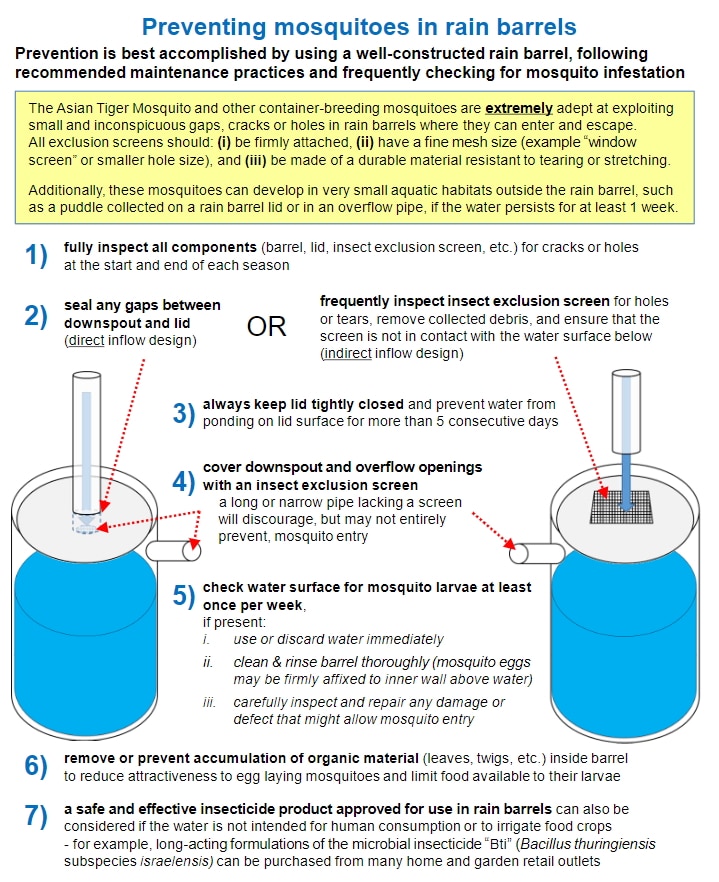This post was originally published on Eco Watch
For water conservationists concerned about keeping pests out of their rain collection barrels, researchers from the University of Illinois Urbana-Champaign have some helpful advice.
A new study, published in Journal of Medical Entomology, looked into the presence of mosquitoes in rain barrels in the central Illinois region and determined the most effective ways to prevent mosquitoes from taking over.
According to the Centers for Disease Control and Prevention (CDC), mosquitoes are drawn to standing water, like that collected by rain barrels, because they lay their eggs in no- to low-flow waters. Barrels with open designs, mesh with large openings, or lipped lids can all provide open access for mosquito breeding.
In the study, the researchers found that of the 53 households surveyed, which had a total of 115 rain barrels, more than half had at least one rain barrel with mosquitoes present.
As part of the study, researchers also reviewed any mosquito prevention efforts for each rain barrel and household. Barrels with mesh panels over the barrel lid were found to be particularly effective at preventing the mosquitoes from laying eggs in water. Using Bacillus thuringiensis israelensis (Bti) — a bacterial insecticide — and chlorine were also effective, as was introducing a natural predator, like goldfish.
However, rain barrel users will need to keep in mind that some of these methods could further limit how they can reuse the collected water. This water is often used for watering gardens or for other non-potable uses, but using Bti-treated water, for instance, should be used for watering decorative plants, not plants that will be consumed.
“Our findings confirmed that there are simple solutions for reducing mosquito habitat, though these solutions require homeowner education and compliance,” Becky Cloud, first author of the study and graduate student of the School of Integrative Biology at the University of Illinois, said in a statement.
According to the study authors, rain barrels should have a tight-fitting, fine-mesh screen, and rain barrel owners should inspect the rain barrel often for any tears, cracks, or other gaps that mosquitoes could squeeze into.
Further, users should inspect the barrel weekly for mosquito eggs, which would be on the surface of the water or along the edges of the barrel. Any mosquito presence means the water should be dumped and cleaned before collecting additional rainwater, and users should be sure there are no crevices for mosquitoes to re-enter the barrel.
The study authors also recommended that officials provide community outreach and education on preventing mosquitoes from inhabiting rain barrels to better protect public health.
Credit: Andrew Mackay / Journal of Medical Entomology
The post Researchers Find Ways to Keep Mosquitoes Out of Home Rain Barrels appeared first on EcoWatch.




0 Comments